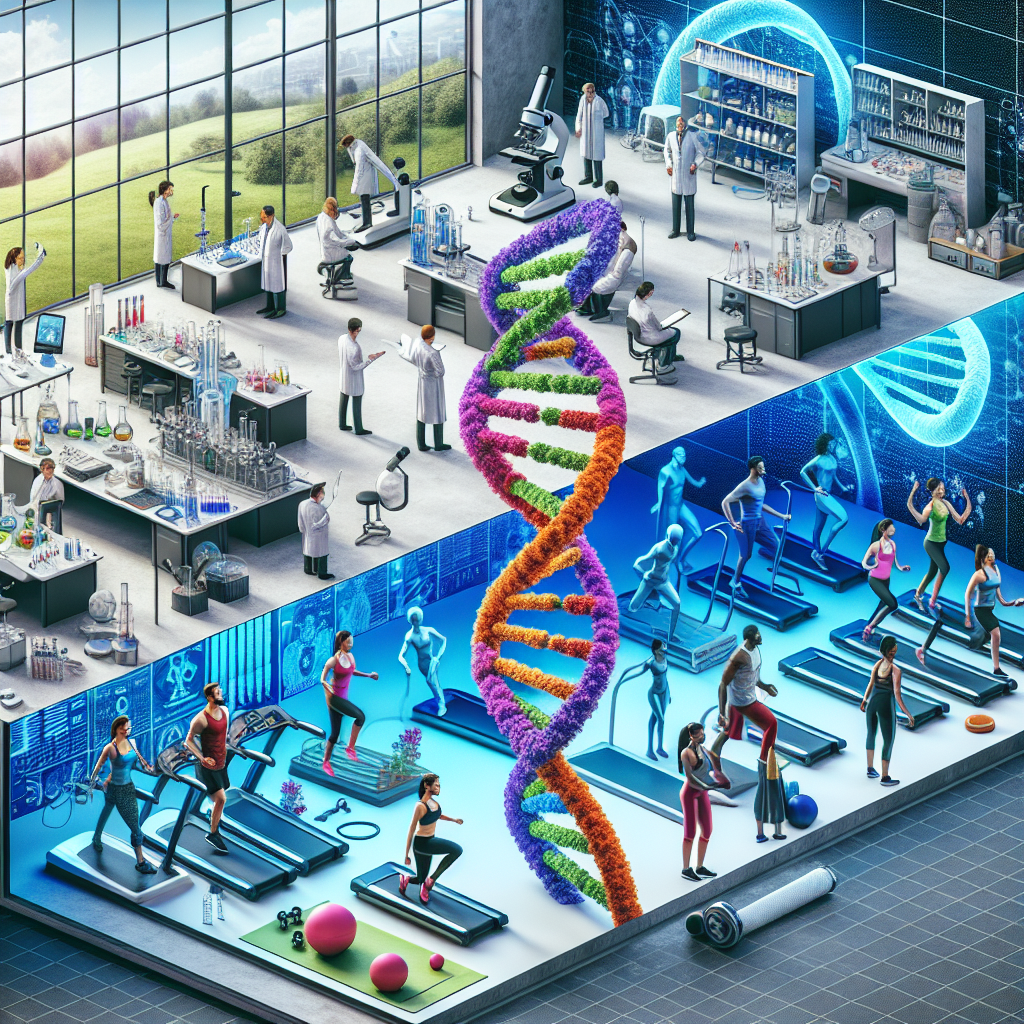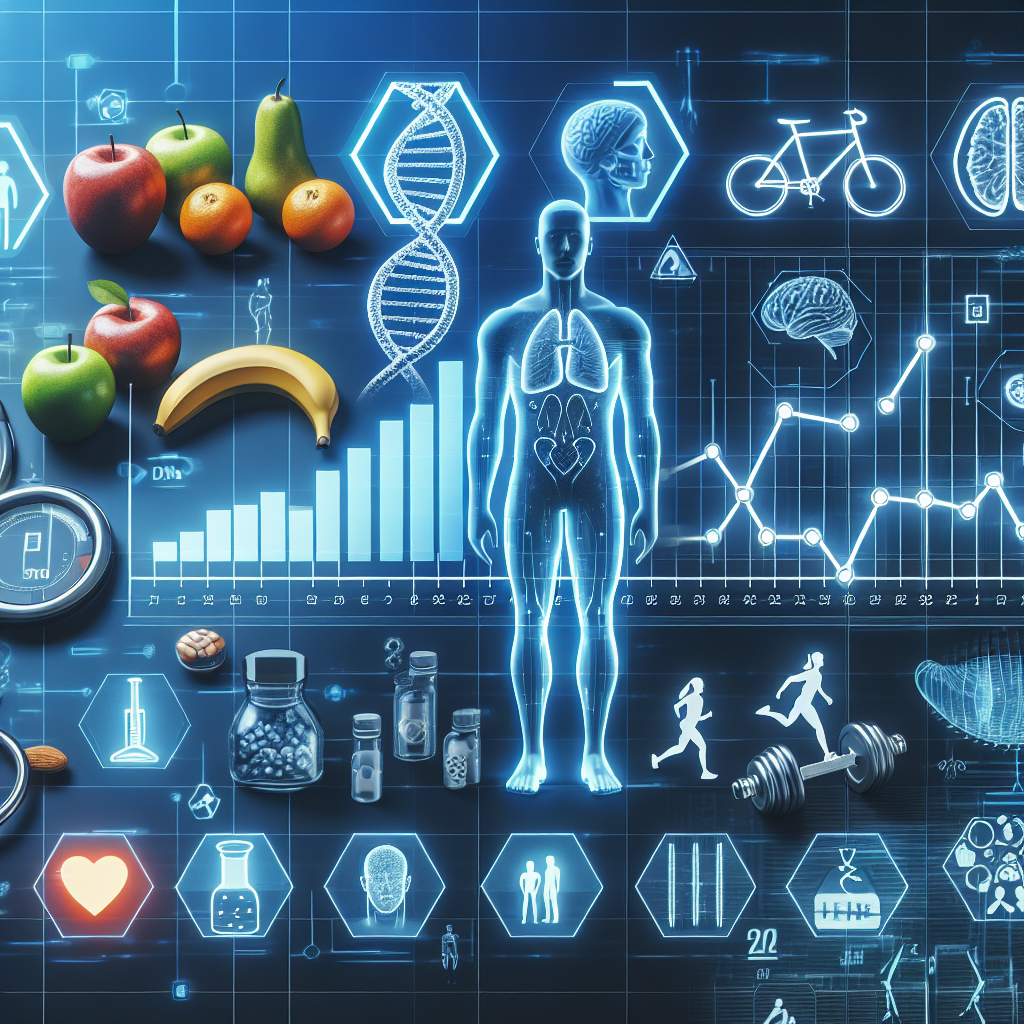What Bio-Hacking Really Does for Your Health

Discover the true impact of Bio-Hacking on your health. Uncover the secrets of this innovative approach and how it can revolutionize your wellness journey. Learn more about what Bio-Hacking really does for your health at Vibrant Vitality. Take the first step towards a healthier you today!
Understanding the Impact of Bio-Hacking on Your Health
Bio-hacking, a term that has gained significant traction in recent years, is a concept that has intrigued many health enthusiasts and professionals alike. It refers to the practice of manipulating one’s own biology through various means, with the ultimate goal of optimizing health, performance, and well-being. But what does bio-hacking really do for your health? Let’s delve into understanding the impact of bio-hacking on your health.
At its core, bio-hacking is about taking control of your own health. It’s about understanding how your body works, and then using that knowledge to make changes that can improve your health and well-being. This can involve anything from changing your diet and exercise routine, to using supplements and other tools to optimize your physical and mental performance.
One of the most common forms of bio-hacking involves dietary changes. This can include practices like intermittent fasting, where you limit your eating to certain hours of the day, or following a ketogenic diet, which involves consuming a high amount of fats and low amount of carbohydrates to force your body into a state of ketosis. These dietary changes can have a significant impact on your health, potentially leading to weight loss, improved energy levels, and better cognitive function.
Another popular form of bio-hacking is the use of supplements and nootropics. These are substances that can enhance brain function, improve memory, creativity, and motivation. They can also help to reduce stress and anxiety, and improve sleep quality. However, it’s important to note that while these substances can have positive effects, they should be used responsibly and under the guidance of a healthcare professional.
Bio-hacking can also involve more advanced techniques, such as genetic testing and personalized medicine. Genetic testing can provide insights into your genetic predispositions, which can then be used to tailor your diet, exercise, and lifestyle to your unique genetic makeup. Personalized medicine, on the other hand, involves using this genetic information to create personalized treatment plans for various health conditions.
While the potential benefits of bio-hacking are exciting, it’s important to approach it with caution. Bio-hacking is a relatively new field, and while there is a growing body of research supporting its benefits, there is still much that is unknown. It’s also important to remember that what works for one person may not work for another, as everyone’s body is unique.
Moreover, bio-hacking should not be seen as a replacement for traditional medicine. While it can certainly complement traditional treatments, it should not be used as a substitute for professional medical advice and treatment. Always consult with a healthcare professional before starting any new health regimen, including bio-hacking.
In conclusion, bio-hacking offers a promising new approach to health and wellness. By understanding and manipulating our own biology, we can potentially optimize our health and well-being. However, it’s important to approach bio-hacking with caution, and always under the guidance of a healthcare professional. With the right approach, bio-hacking can be a powerful tool in our quest for optimal health.
The Role of Bio-Hacking in Enhancing Personal Wellness

Bio-hacking, a term that has gained significant traction in recent years, is a concept that has piqued the interest of health enthusiasts and scientists alike. It refers to the process of making changes to your lifestyle in order to “hack” your body’s biology and feel your best. This can be achieved through a variety of methods, including diet, exercise, sleep, and even more advanced techniques like genetic engineering. But what does bio-hacking really do for your health? Let’s delve into the role of bio-hacking in enhancing personal wellness.
Bio-hacking is essentially the practice of changing our chemistry and physiology through science and self-experimentation to energize and enhance the body. It’s a broad definition that could encompass anything from installing do-it-yourself body enhancements such as magnetic implants to genetic engineering. The primary goal is to make the body function better, to enhance its ability to perform and to feel better equipped to handle the rigors of daily life.
One of the most common forms of bio-hacking is through diet, with many people experimenting with different types of food intake to see how it affects their body. This could involve intermittent fasting, where you limit your eating to a certain time window each day, or a ketogenic diet, which is high in fat and low in carbohydrates. These dietary changes can have a significant impact on your body’s metabolism, potentially leading to weight loss and improved energy levels.
Exercise is another area where bio-hacking can play a significant role. High-intensity interval training (HIIT), for example, is a form of exercise that involves short bursts of intense activity followed by periods of rest. This type of training can improve cardiovascular health, boost metabolism, and increase fat loss. Similarly, resistance training can increase muscle strength and endurance, improve bone density, and boost metabolism.
Sleep is another crucial aspect of bio-hacking. Many bio-hackers use techniques to optimize their sleep patterns to improve overall health. This could involve adjusting the timing of sleep, manipulating light exposure to influence circadian rhythms, and using various tools and techniques to improve sleep quality.
Beyond these lifestyle changes, some bio-hackers delve into more advanced techniques. This could involve the use of supplements or nootropics, substances that can enhance cognitive function. Some bio-hackers even experiment with genetic engineering, using techniques like CRISPR to alter their DNA in an attempt to improve their health or physical capabilities.
While bio-hacking can certainly have positive effects on personal wellness, it’s important to approach it with caution. Not all bio-hacks are created equal, and what works for one person may not work for another. It’s also crucial to remember that while bio-hacking can complement traditional medicine, it should not replace it. Always consult with a healthcare professional before making significant changes to your lifestyle or attempting more advanced bio-hacking techniques.
In conclusion, bio-hacking offers a fascinating glimpse into the potential future of personal wellness. By making changes to our diet, exercise, sleep, and even our genes, we can potentially “hack” our bodies to improve health and performance. However, as with any new health trend, it’s important to approach bio-hacking with a healthy dose of skepticism and a commitment to safety. With the right approach, bio-hacking can be a powerful tool in the quest for optimal health.
Decoding the Health Benefits of Bio-Hacking
Bio-hacking, a term that has been gaining traction in recent years, is a concept that combines biology with the hacker ethic. It’s a broad term that encompasses a variety of practices, all aimed at improving health and well-being by ‘hacking’ your body’s natural systems. But what does bio-hacking really do for your health? Let’s decode the health benefits of this intriguing practice.
Bio-hacking is essentially the practice of changing our chemistry and physiology through science and self-experimentation to energize and enhance the body. It’s a broad-spectrum term, which can be as simple as implementing lifestyle and dietary changes for improved health, or as complex as using implant technology and genetic engineering. The goal is to leverage every tool at our disposal to optimize our physical, mental, and lifespan potential.
One of the most common forms of bio-hacking is nutritional bio-hacking. This involves tweaking your diet to provide your body with the nutrients it needs to function optimally. For instance, the ketogenic diet, a high-fat, low-carb diet that forces your body to burn fat for energy, is a popular form of nutritional bio-hacking. By changing your diet in this way, you can improve your energy levels, mental clarity, and overall health.
Another popular form of bio-hacking is sleep optimization. This involves adjusting your sleep habits to ensure that you’re getting the right amount of high-quality sleep each night. This can involve anything from adjusting your sleep environment to using sleep tracking devices. By optimizing your sleep, you can improve your mood, cognitive function, and overall health.
Physical bio-hacking is another common practice. This can involve anything from high-intensity interval training (HIIT) to yoga and meditation. The goal is to improve physical fitness and mental well-being. For instance, HIIT has been shown to improve cardiovascular health, while yoga and meditation can reduce stress and improve mental clarity.
In recent years, technology has played an increasingly important role in bio-hacking. From wearable fitness trackers to apps that help you monitor your sleep and diet, technology has made it easier than ever to track and improve your health. More advanced forms of technological bio-hacking include genetic testing to understand your genetic predispositions and using this information to tailor your lifestyle accordingly.
While bio-hacking can certainly have positive effects on your health, it’s important to approach it with caution. Not all bio-hacks are created equal, and what works for one person may not work for another. It’s also important to remember that while bio-hacking can help you optimize your health, it’s not a substitute for traditional medical advice. Always consult with a healthcare professional before making any major changes to your lifestyle.
In conclusion, bio-hacking is a fascinating and potentially beneficial practice that involves tweaking your lifestyle to improve your health. Whether it’s through nutritional changes, sleep optimization, physical exercise, or the use of technology, bio-hacking offers a variety of ways to ‘hack’ your body’s natural systems for improved well-being. However, it’s important to approach bio-hacking with caution and always consult with a healthcare professional before making any major changes to your lifestyle.